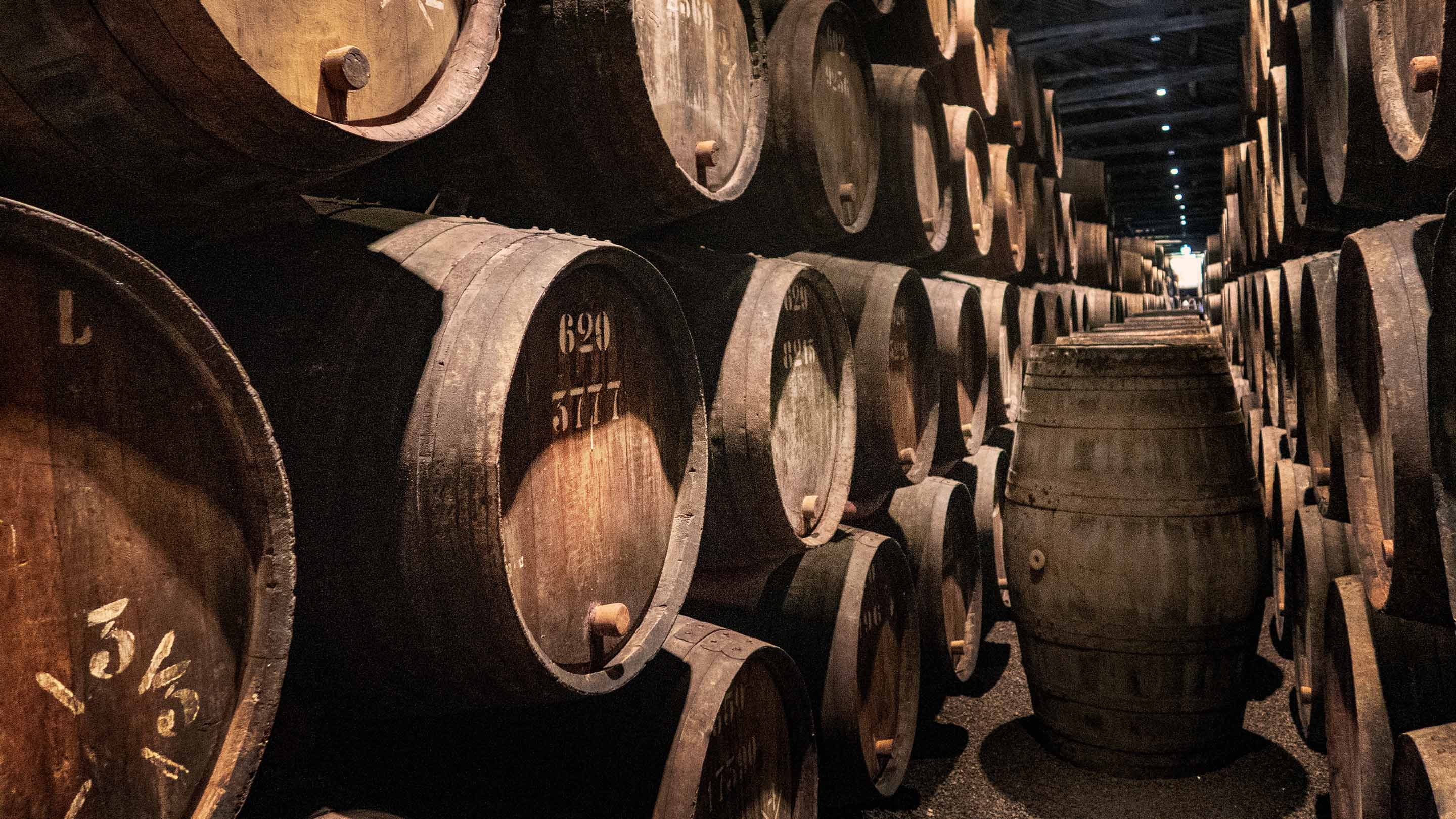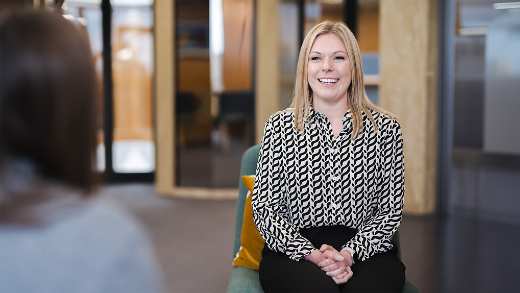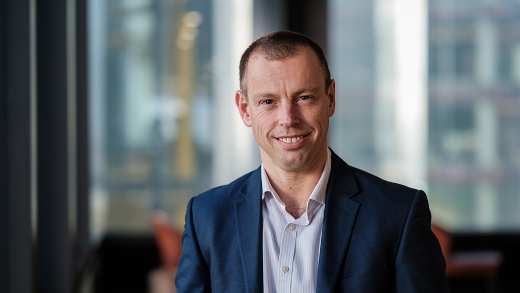Sam Woods
Digital Communications
From bourbon bobbing on barges to Van Goghs crossing continents, Howard Potter's team helps protect global trade in ways you'd never expect.
I’d be willing to bet that most of us don’t think about marine insurance too much, but it has more impact on our lives than we realise. Especially if you’re like me and you have new deliveries arriving at your doorstep every day. Marine insurance plays a big part in them getting there.
I hadn’t thought about it much myself (or at all, if I’m honest) until I saw that Aviva has been offering marine insurance for 200 years. That’s a big milestone, and we’re in such a different world now, it got me wondering about how much things must have changed.
That’s why I sat down for a coffee with Howard Potter, Aviva’s Head of Marine.
More than just boats
Howard has been with Aviva for a year, but he’s been working in the marine insurance industry for 30 years. “I know, it doesn’t look it!” he jokes.

Howard explained to me, kindly, that marine insurance is about a lot more than just containers on container ships.
“The marine market is basically the insurance of international trade,” he tells me.
Fundamentally, Howard says, it’s property insurance—but for property that’s being moved all around the world. It splits into a family of maritime businesses, each specialising in a different part.
There’s cargo insurance for goods being moved, of course, and there’s hull insurance for the ships that are doing the moving. Then there’s insurance for ports and terminals, and even insurance for really high-value things like gold bars and Rembrandts – called ‘Fine Art and Specie’ insurance.
“The next time you see a Van Gogh exhibition at the New York Met, or somewhere in London, or in the Louvre, or the Musée d’Orsay—that will be insured. Not just the transit there, but whilst actually there, too.”
Aviva is particularly big in cargo insurance. That’s not just things being carried on ships, Howard makes clear, but “… by train, by truck, by aeroplane, by camel… whatever it might be.”
“Cargo insurance makes up most of the Aviva marine portfolio. That’s not surprising, because cargo is the largest part of the global marine market. Over the long term,” he adds, “it’s also the most profitable.”
In terms of what that cargo might be, Howard tells me that some of what we insure today isn’t all that different from 200 years ago.
“Ships back then would sink carrying wine or raw materials—maybe a fibre like jute or silk, something like that. That is still shipped. Those losses can still happen.”
But he also pointed out that shipping is much safer now thanks to modern technology and a real focus on protecting lives at sea.
The world has changed in a lot of ways. Even simple things like refrigeration bring new kinds of claims and challenges that didn’t exist 200 years ago. Global supply chains have become far more complicated, too. “It’s not just a merchant in one port selling to another,” he says. “Now we have a global, interconnected supply chain.”
Bigger ships, bigger risks
Despite all the technological advances, some things do stay very much the same: The amount of goods transported on ships is still unmatched.

“Even today, 80 to 90% of the world’s cargo is shipped by sea,” Howard explained.
When I asked Howard about new challenges that might not have been predicted 200 years ago, he pointed to the size of modern container ships. “In 1994, when I started in the industry, the biggest container ship held about six or seven thousand containers,” he said. “Now, that’s doubled and doubled again.”
While bigger ships might be good for business, they also come with bigger risks. A couple of years ago, a container ship got stuck and blocked the Suez Canal for six days. Just one incident with one ship had a major impact on global trade.
“That ship was bigger than anything the engineers who built the canal could have imagined,” Howard said.
Climate change is another big challenge. More frequent and intense storms, floods and wildfires in particular. “It affects what’s insurable,” Howard said.
Tracking the future
But, on the bright side, new technology is set to improve the industry in new ways.
About Lloyd's
Lloyd’s of London is a famous insurance marketplace, based in the Lloyd’s Building in the City of London. Lloyd’s is where people can get insurance for unique or difficult risks. Think priceless art, space missions, or even celebrity body parts (like David Beckham’s legs, or Keith Richards’ fingers.)

“Historically,” Howard told me, “You insure your exporter, who hands over their beautifully manufactured goods to a shipping line in good faith, then away it goes on the seven seas, or in the air, or on trains, and they don’t know where it is. You’re insuring it from point A to point B, not knowing where it is on that journey at any given time.
“Up until now, it’s been too expensive to put trackers on everything,” Howard explained. “That will change. In the next five to ten years, you’ll know exactly where things are.”
Tracking technology will help Howard’s team manage risks better by knowing exactly where goods are at any time. “It takes some unknowns out of the modelling,” Howard said.
During our conversation, it’s clear how proud Howard is of his team at Aviva and the huge amount of expertise they have. “We’re one of the top players in the UK,” he said. “One minute, you’re working with a wine distributor, and the next, someone importing computer chips.”
“Because marine insurance is an international business, it has its own special rules based on maritime law, international agreements, and special wordings to make sure that they’re understood all around the world.
“This helps sellers, buyers, and the banks that finance them all work together, wherever they are, but it also means it needs experts.”
In London, the team works in two areas: a retail team focused on multinational programs and a group of underwriters working at Lloyd’s of London. The underwriters work in a fast-paced setting, making real-time decisions. “It’s a quick, busy trading environment where they’re constantly making decisions face-to-face with brokers and clients,” Howard explained.
“We also have cargo specialists in Manchester, Birmingham, Leeds, as well as in Scotland and in the South,” he emphasised. “This is not all about people in London by any means!”
Even though the roles are different and they’re spread out geographically, the team works closely together. “Cargo insurance is cargo insurance, and we work as one team. Everyone helps each other, and that’s really important,” he said.
From bourbon to Van Gogh

In marine insurance, underwriters often focus on specific areas, Howard tells me. These specialities let them become experts in those areas, which helps them give better service to clients. Howard mentioned one such specialist at Aviva.
“Doug Ruggles heads up our cargo team in Lloyd’s, and he handles a lot of American wine in California and bourbon in Kentucky,” Howard said. “It’s not as simple as putting it on a lorry and sending it to a port.
“We had an interesting case last year. It was considered marine insurance because the whiskey was being stored on a barge floating on the Mississippi,” he said.
The gentle bobbing of the barge created a better flavour as the whiskey aged in the barrels, apparently. But it also created a unique risk that needed specialist understanding. Specialist understanding that the team has.
Aviva also insures fine art and high-value items—known as ‘specie’—and this also has a specific expert team, headed up in London by Craig Bedford.
Howard explained that this covers four areas. There’s fine art, general specie, cash in transit, and jeweller’s block. Between those areas, we cover everything from museum collections and precious metals to cash in vaults and “... people wearing jewellery for photo shoots, movies—that kind of thing.
“You get some very, very interesting clients with that!”
No matter what it is we’re insuring though, Howard emphasised that a strong claims service is crucial. “I’m really proud of the team that we have. We've got really top people in the underwriting team, and it's not often that you can mirror that up with market leading claims handling.
“At the end of the day, people buy the policy for the claims service,” he said, explaining that they also have to be specialists. “It’s people who live and breathe those industries.”
As for the future, Howard is excited about our potential to grow and all the different opportunities that come up. He mentioned our recent acquisition of Probitas as an example. “With that, we’ll be able to grow the proposition even further,” he said.

Howard is also enthusiastic for anyone considering a career in marine insurance.
“It’s probably the most international type of insurance,” he said. “You meet people from all walks of life in different countries. You make friends all over the world.”
“It’s a great career to have.”
He added that a strong interest in world events is a real requirement. “You need to care about what’s happening in the world. You have to understand how things can change,” he said, bringing up the Houthis firing at ships in the Red Sea earlier in the year as an example.
“We had to respond to that as a market—not just Aviva individually—and try to work out what was going to happen next.”
Howard himself finds cargo insurance fascinating because it covers such a wide range of products. “Everything in this room—electronics, furniture, even our clothes—has been insured as cargo from somewhere at some point,” he’d said, gesturing around the office kitchen where we’d sat to have our chat.
I think that’s what I took most from our conversation, and what I should end with.
We might not think about marine insurance, but it genuinely does make a difference to our day-to-day lives. From the phone in your hand to the clothes on your back, almost everything will have been shipped—and insured—to get to you. No matter if that was by sea, by air, by train... or even by camel.

















